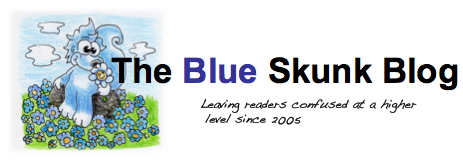A few random thoughts
 Monday, May 13, 2024 at 10:50AM
Monday, May 13, 2024 at 10:50AM
Bonding with the cat I am sitting
For some reason, I’ve not had much luck the last couple weeks putting together any blog posts. Perhaps it is just spring fever. But here are a few random observations I’ve jotted down. Go right ahead and skip this and read something more important. Like your horoscope or the most recent political news.
You’re never too old to learn new words
While I rarely agree with George Will, I still read him faithfully. Not for his political views, necessarily (although I think it is important to read multiple perspectives on current events), but in nearly every column one can find an unfamiliar word or two. In his last column it was: psephologist. In the same essay, he used the word dyspepsia which I had seen before but could not remember the meaning of. Oh, Maureen Dowd recently used the term batrachian to describe Trump’s sexual behavior. Isn’t it convenient to now just be able to right-click on these words to find their meanings instead of hauling out the old Merriam-Webster?
A campaign to eliminate junk mail
A week or so ago I decided I was fed up with seeing a couple dozen messages in my spam folder each time I opened my email. So I have been assiduously unsubscribing, especially from the emails sent by real businesses and organizations*. I am delighted by how many junk emails now include a link to means of being removed from the mailing list. I have read that one needs to be cautious since trying to unsubscribe can alert the sender they have a live fish on their hook. So I’ve been ignoring the obvious spam and phishing notes. The quantity has decreased. But the junk has not disappeared. It's fun to have time in retirement to do such things. Now if I could find a way to stop getting junk physical mail.
*Ironically, I may not have unsubscribe had the business sent me one or two emails a week instead of several emails a day.
How we treat our parents
My son and I spent a long day driving to see my 91-year-old, increasingly dementia-plagued, mother yesterday. While she was delighted to see us and picnic with my brother and sister and other family members, she asked less than an hour after the meal was over what I thought my siblings were doing that day. Were I a betting man, I would not stake anything on whether she remembers my son’s or my visit now.
I am glad my son went with me, sharing the seven hours of driving. While I am not too worried about needing care from my own children in my dotage, I hope I am setting an example for him when his mom, my ex-wife, needs attention. (To a degree, he is already doing that now.) Treat others as we would like to be treated.
Perhaps our children form their opinions of us not just from how we treat them, but from how they see us treat others as well. If either of my two wind up in jail, I will have only myself to blame.
We take better care of others’ things than we do our own
For the past two weeks, I have been house-sitting for a friend who is on an long cruise with her sister. The primary reason I am staying here is to provide care and companionship for her much beloved cat. (I also fill bird feeders and water plants.) While I am happy to do this, it causes no small amount of anxiety. Should something happen to the cat (escape, illness, injury…), I would feel overwhelmingly guilty - worse, I am sure, than if a pet of my own suffered.
I can put a dent in my car and shrug it off. I can break a dish in my own kitchen and replace it. I can stain or rip a sweatshirt and simply say “So what?” But should the auto, the plate, or the clothing belong to another, it would hurt me, knowing I might have been more careful. Goddam conscience!
An old favorite
There once was a pretty good student,
Who sat in a pretty good class
And was taught by a pretty good teacher,
Who always let pretty good pass.
He wasn't terrific at reading,
He wasn't a whiz-bang at math.
But for him, education was leading
Straight down a pretty good path.
He didn't find school too exciting,
But he wanted to do pretty well,
And he did have some trouble with writing
And nobody had taught him to spell.
When doing arithmetic problems,
Pretty good was regarded as fine.
Five plus 5 needn't always add up to be 10,
A pretty good answer was 9.
The pretty good class that he sat in
Was part of a pretty good school.
And the student was not an exception,
On the contrary, he was the rule.
The pretty good school that he went to
Was there in a pretty good town.
And nobody seemed to notice
He could not tell a verb from a noun.
The pretty good student in fact was
Part of a pretty good mob.
And the first time he knew what he lack was
When he looked for a pretty good job.
It was then, when he sought a position,
He discovered that could be tough.
And soon he had a sneaky suspicion
Pretty good might not be good enough.
The pretty good town in our story
Was part of a pretty good state,
Which had pretty good aspirations,
And prayed for a pretty good fate.
There once was a pretty good nation,
Pretty proud of the greatness it had,
Which learned much too late,
If you want to be great,
Pretty good is, in fact, pretty bad.
Charles Osgood "The Osgood File" c 1986, CBS Inc.







